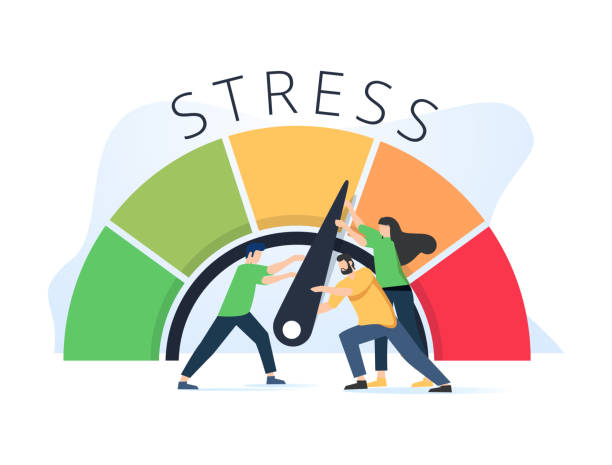
As an active blogger my brains are all the time at work. I am writing this article from a base jungle camp, deep in the jungle of the Republic of Suriname where I spent some time to relax and to unite with the nature elements. So I was cleansing my body for stress as well. I really hope you enjoy this blog.
Do you realize in time that you are stressed? Or do you keep letting stress overwhelm you? In this article you can read what you should pay attention to so that you can hit the brakes in time.
Stress starts small
Stress often starts small and subtle. This makes it easy to overlook the first signals. Especially if you are busy with other things. Your mental and physical health will then become less of a priority.
Moreover, stress looks different for everyone. One person suffers from vague physical complaints, while another feels extra irritable , for example .
The problem is, you can get on with these subtle symptoms just fine. You take a painkiller, pour yourself another cup of coffee – and when you don’t feel up to it in the evening, you put a pizza in the oven.
Of course, I don’t have to tell you that this only works in the short term . In the long run you will only make the problem worse.
Do you want to experience less stress on a structural basis and live life more lightly? Then it is smart to hit the brakes at the first signals.
Physical stress signals
A physical response to stress occurs because your brain receives a signal that you need to be extra alert. For our ancestors, this was a useful tool for survival.
This means that your brain, heart and muscles are put on high alert. So that you can give just that little bit extra in the event of danger.
Other parts of your body receive less attention. After all, what good is good digestion if you’re about to be eaten yourself?
Once the danger has passed, your body can relax and recover. At least, that’s how the stress system is intended. But in our modern age there are constant stimuli that activate our stress system. This gives you no time to recover.
These are physical stress signals:
- An accelerated heart rate and breathing
- Fatigue, but still having difficulty sleeping
- The unconscious tightening of muscles, for example in your neck, jaw, back or shoulders
- Tension headache
- Dizziness or ringing in the ears
- Abdominal pain or intestinal cramps
- Cold hands, dry mouth and excessive sweating
Emotional and mental stress signals
Stress also affects the way your brain works. Just think of an acute stressful situation such as a car running a red light – which requires you to react in a split second. The instinctive part of your brain takes over.
Complicated brain functions such as planning, organizing, concentrating and keeping an overview are temporarily pushed into the background. This also applies to regulating your thoughts and emotions.
Does the stressful situation last longer? Then you become mentally out of balance.
Fatigue also plays a role in this. Because you get little rest during stressful periods, you can cope less and you are more likely to suffer from a bad mood.
Emotional and mental stress signals are:
- Difficulty concentrating and prioritizing
- Worry a lot or suffer from negative thoughts
- Be easily angry, irritated or sad
- Forgetting appointments or arriving late
- Feeling gloomy and depressed
- Not wanting to have sex anymore
- Snacking a lot or not being hungry at all
- Avoiding social contacts
Hit the brakes
Do you recognize a large number of these 15 signals? Then investigate where they come from.
Do you have a to-do list that will help you wallpaper the living room? Are you an informal caregiver with a busy family and demanding job? Or do you set the bar so high for yourself that even a pole vaulter can’t clear it?
Then it’s time to hit the brakes. Put your own well-being and health first. This means that sometimes you have to say no to someone else to say yes to yourself.
In addition, ensure sufficient rest and relaxation. Take plenty of breaks and do something every day that helps you relax, such as:
- Walking or cycling in nature
- Listen to music
- Read a nice book
- To play sports
- Pursue a hobby
Have you calmed down a bit? Then think about why you keep falling into that stress trap. Why are you so busy? Why do you set the bar so high? What’s behind that? Maybe you have the urge to prove yourself, you are a perfectionist or you think you can only be successful with a full agenda.
Only when you address the underlying cause can you truly free yourself from stress and the annoying symptoms that come with it.
Are you unsure about the cause of your complaints? Then make an appointment with your doctor. A Checkup can rule out whether there is something else going on, such as a (chronic) illness, allergies or a vitamin deficiency.
Reduce stress step by step
Stress sucks the joy out of your day. Fortunately, there are many things you can do to quickly experience less stress. Look for yourself and discover what is the best thing to do.
So that happiness can flow back into your day.

